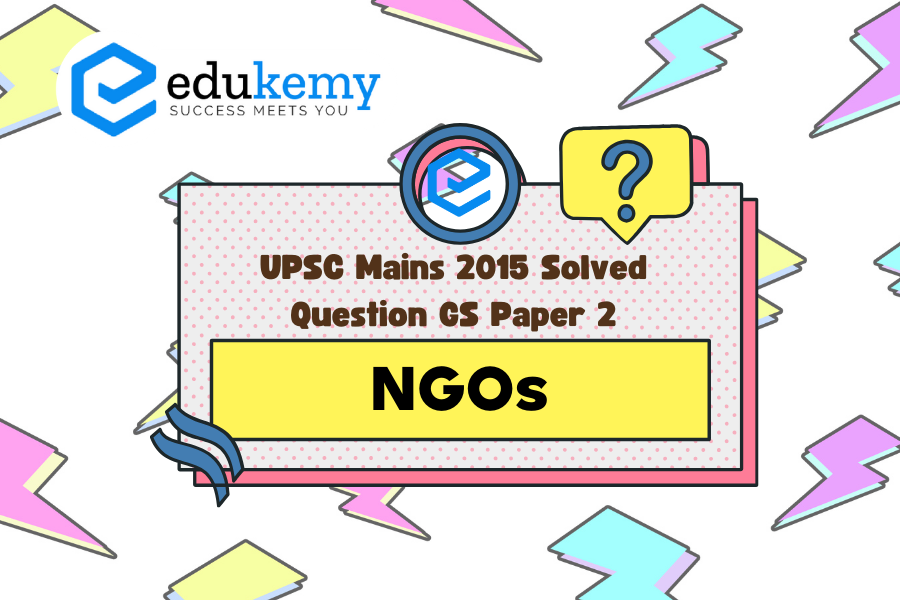In the dynamic landscape of sustainable development, the role of Non-Governmental Organizations (NGOs) in India is pivotal, especially concerning environmental protection and conservation efforts. Strengthening the contribution of NGOs in this realm is crucial for fostering sustainable development and addressing the growing environmental challenges faced by the country. These organizations play a vital role in creating awareness, implementing community-based initiatives, and influencing policy changes to ensure a balanced approach toward development that harmonizes with environmental preservation. However, several significant constraints impede the effective functioning of NGOs in India’s environmental sector. Issues such as inadequate funding, bureaucratic hurdles, and a lack of supportive policies often hinder their initiatives. Additionally, the need for better coordination between NGOs and government bodies, as well as enhancing the capacity-building of these organizations, emerges as a critical factor. This discussion will delve into how the role of NGOs can be strengthened in India, shedding light on these major constraints and proposing measures to overcome them for a more robust and impactful environmental protection framework.
Tag: Development processes and the development industry —the role of NGOs.
Contents
Decoding the Question:
- In the Introduction, you can define NGOs and the role of NGOs in India.
- In Body, divide it into three subheadings:
- Role of NGOs in India for Development Works Relating to Protection of the Environment.
- Major Constraints for NGOs in India for Development Works Relating to Protection of the Environment.
- Ways by which the role of NGOs can be strengthened in India for development works relating to the protection of the environment.
- Conclude with the positive suggestions.
Answer:
“What we are doing to the forests of the world is but a mirror reflection of what we are doing to ourselves and to one another.” – Mahatma Gandhi
NGOs are voluntary organizations that work toward a social cause and social justice. They have assumed a significant space in civil society. NGOs with the support given by the government have been accelerating their development activities by taking up specific issues like poverty alleviation, casteism, discrimination, women’s rights, child labor, rural development, environmental issues, etc. In the last two decades, the role of NGOs has become significant in the social sector development-education, health, etc.

Role of NGOs in India for Development Works Relating to the Protection of the Environment:
- Environmental NGOs typically take up causes related to the environment such as Climate Change, Air Pollution, Deforestation, Ozone Layer Depletion, Waste Management, Biodiversity, and Environmental degradation.
- NGOs have an increasing presence in making and implementing environmental policies and laws. NGOs can and do deploy important skills and resources in the process of environmental protection. For Example, Among NGOs working for the protection of the environment, the World Wide Fund for Nature (WWF) in India was the first to advocate the conservation of nature on a national basis.
- Contrary to the popular perception that NGOs are always critical of government initiatives, it is now widely recognized that NGOs also contribute positively to enhancing state initiatives towards environmental protection by working in constructive partnerships. For example, IUCN and the Centre for Science and Environment. Their reports are seriously considered by Policymakers.
- NGOs have played a role in the negotiation, monitoring, and implementation of environmental law and policy at all levels. In their efforts to address the increasing complexity and severity of environmental problems, states have incorporated NGOs because their participation enhances their ability to regulate.
- NGOs are constructive participants and provide policy advice, help in monitoring commitments, minimize ratification risk and facilitate linkages between governments.
Ways by Which the Role of NGOs Can be Strengthened in India for Development Works Relating to the Protection of the Environment:
- Need to define the area of work: Environmental NGOs must meet their set objectives of environmental sustainability. The impact of the NGOs will depend upon their ability to mobilize resources, create partnerships with the Industry and Government, and on their ability to use media and tools such as RTI and PIL to their advantage.
- Need to collaborate with Government: One of the important stakeholders in the environmental issue is the Government-whether Central or state governments. NGOs need to work in collaboration with concerned departments such as the Ministry of Environment and Forests, Central and State Pollution Boards, and others.
- NGO and Media: NGOs should act as feeders for news media houses. They should collaborate with the media to bring environmental issues to the forefront.
- Need to have ethical values: NGOs have a lot of opaqueness in the funding and activities, and because of this, the view for NGOs is slowly but surely taking a beating due to unscrupulous and unethical activities by some NGOs. Some NGOs are accused of taking up only those causes that give them publicity rather than taking up important issues. So, they need to avoid and abide by the consciousness of their working ethics and morals.
- No misuse of RTI and PIL: The misuse of RTI and PIL by some NGOs is creating bad publicity and needs to be curtailed.
Environmental NGOs have emerged as a strong and potent group for advocating Environmental Issues. important elements such as RTI, PIL, media, and collaboration with government and Industry which if used potently will help the NGO to effectively meet its Environmental objectives. However, there is a growing distrust deficit amongst NGOs, Industry, Government, and the Public due to a lack of transparency and accountability in the working of NGOs. So, NGOs must self-regulate and act as responsible organizations.
In case you still have your doubts, contact us on 9811333901.
For UPSC Prelims Resources, Click here
For Daily Updates and Study Material:
Join our Telegram Channel – Edukemy for IAS
- 1. Learn through Videos – here
- 2. Be Exam Ready by Practicing Daily MCQs – here
- 3. Daily Newsletter – Get all your Current Affairs Covered – here
- 4. Mains Answer Writing Practice – here


